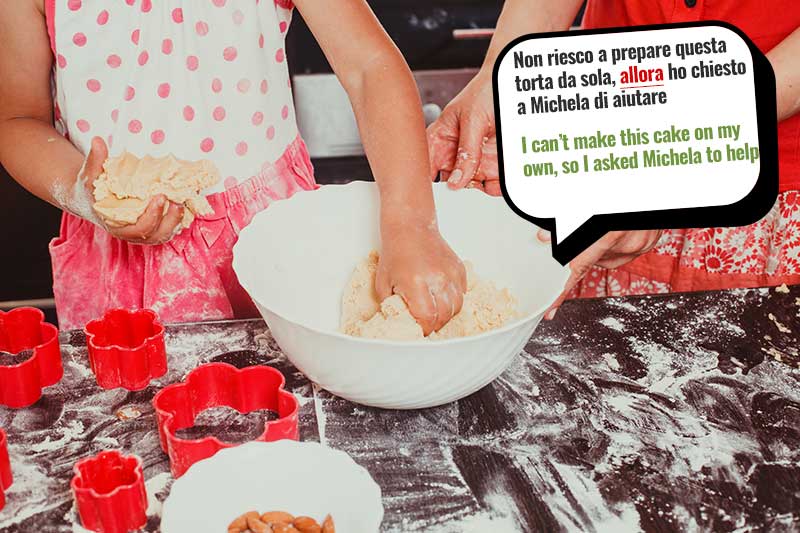Non iniziare mai una frase con “allora”!
Or so say all Italian primary school teachers to their pupils. And they are certainly right, at least when it comes to formal writing and speaking, but let us be honest: the love story between this ubiquitous little morsel of lexicon and the people of Italy is never going to end.
It all started, as it almost always is with Italian, with three little Latin words: ad illam horam, in that hour: and that is, still today, its official meaning. It can be also used instead of quindi or dunque, to show the consequence of something.
Boring and plain, I know. Or maybe not. Because allora has a second – not so hidden – life, it is like those people who wear only beige during the week and strut it down the street in hot pink sequins at weekends. In spoken language, allora is one of Italy most common intercalari, those little words we use almost without noticing, sometimes between a sentence and the other, sometimes to show insecurity or doubt. Allora is the king of intercalari, sequins et all: at the beginning of the sentence it shows you’re gathering your thoughts; before a question, it can express curiosity, impatience and even sarcasm. If someone shouts it at you, it means they are pretty angry.
As popular as cacio sui maccheroni, then, but beware of the fact language purists, and teachers, stress that, if you write or speak formally, you should refrain from using allora as an intercalari too much, and especially you should never, ever start a sentence with it. Unless, of course, you’re using with its temporal or consecutive meaning. But that’s just taking all the fun out the word, isn’t it?

Andavamo a scuola insieme. È allora che l’ho conosciuta.
We were in school together. That’s when I met her.

Non riesco a prepare questa torta da sola, allora ho chiesto a Michela di aiutare.
I can’t make this cake on my own, so I asked Michela to help.

Allora! State zitti o no?
Hey! Are you going to be quiet or not?




























